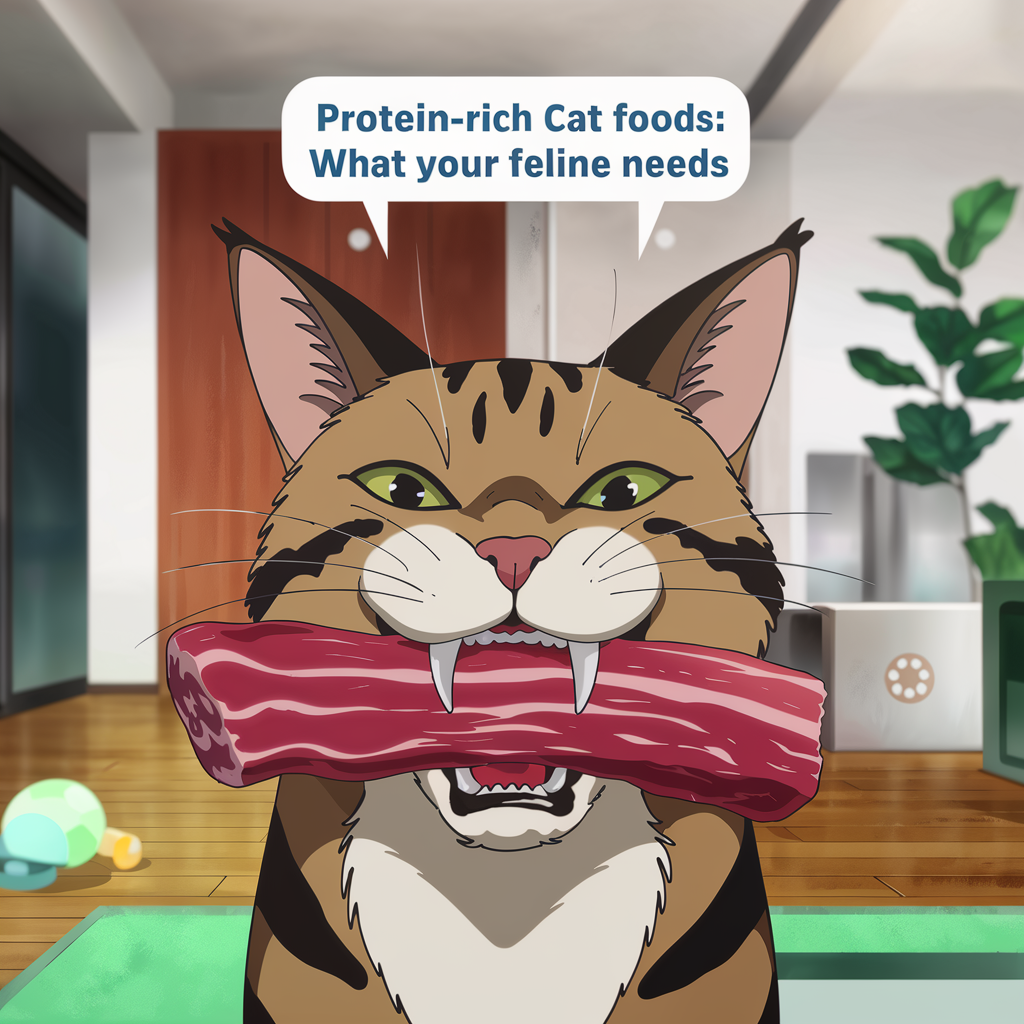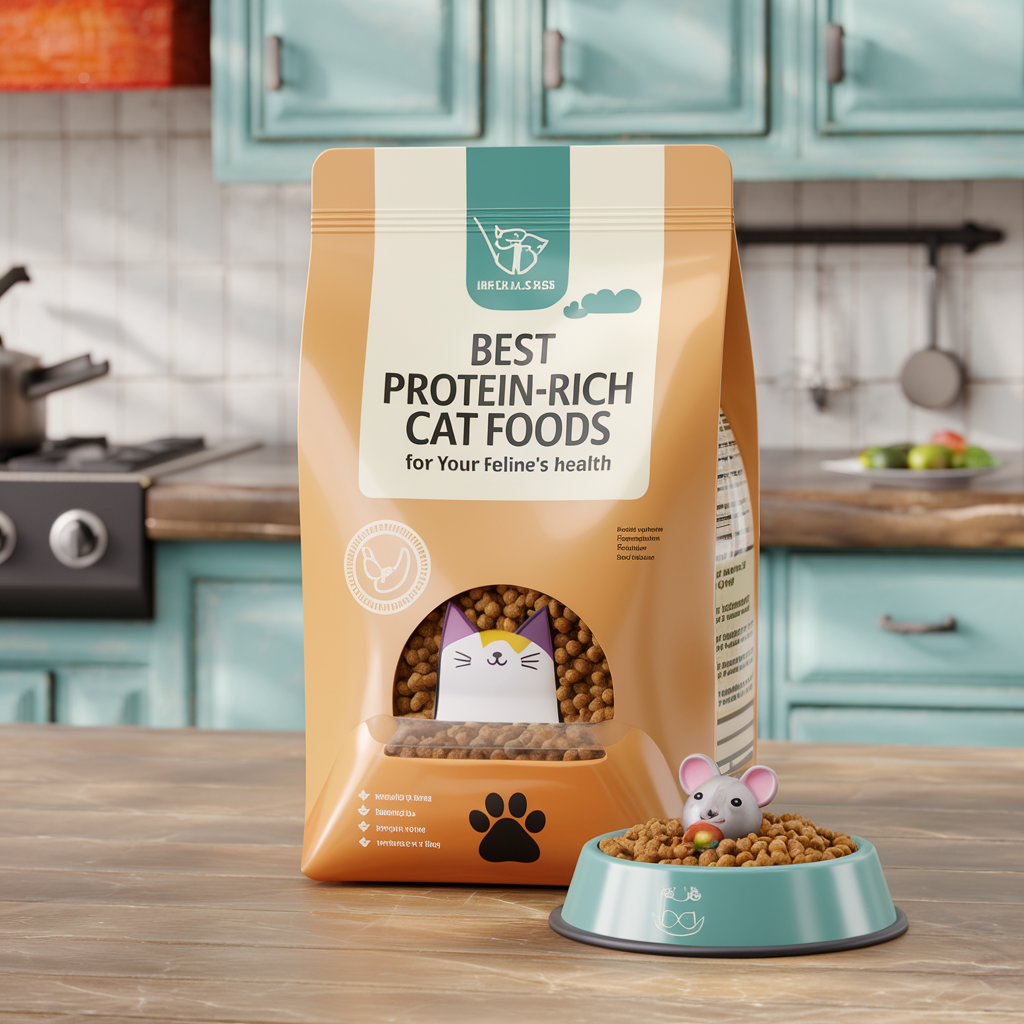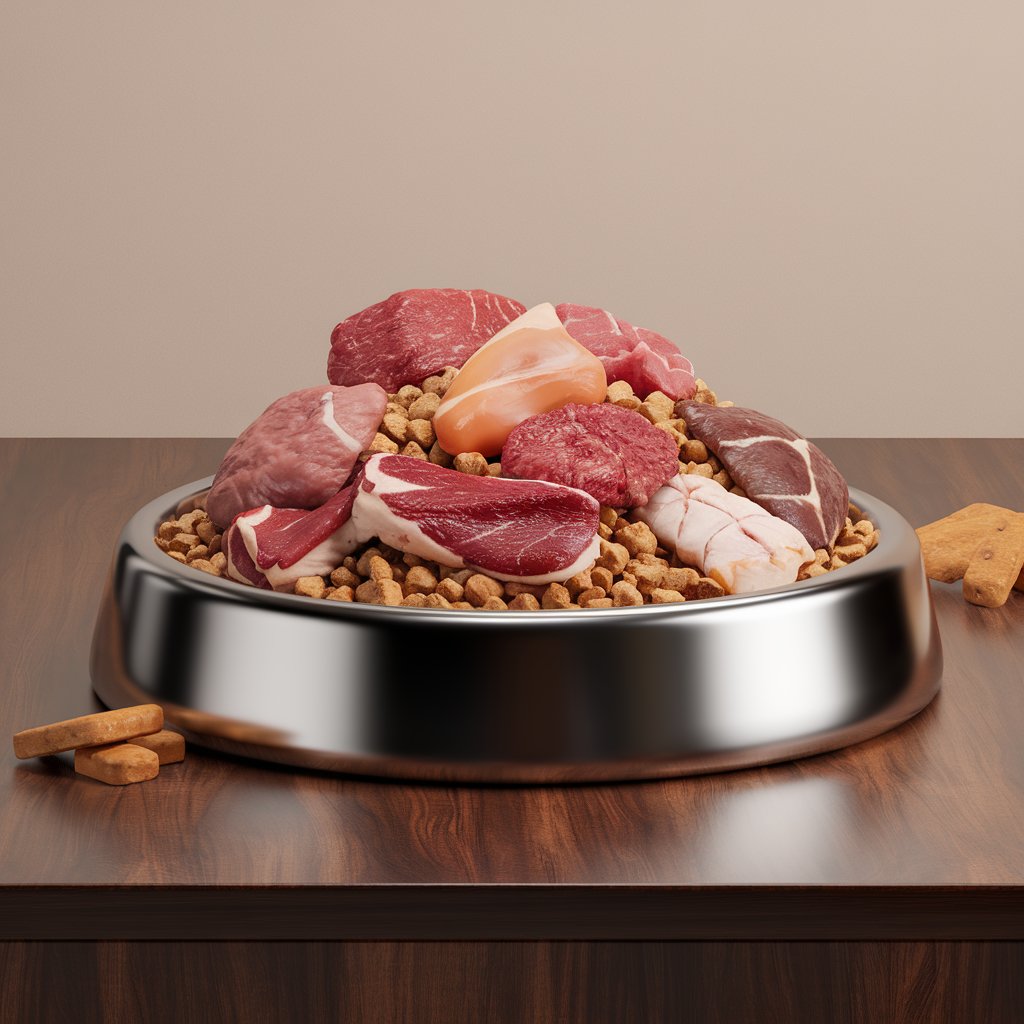As a devoted cat owner, you want the best for your feline companion, especially when it comes to their diet. The importance of feeding your cat protein-rich foods cannot be overstated. Protein is a vital nutrient that plays a crucial role in your cat’s overall health and well-being. In this article, we’ll explore the significance of protein in your cat’s diet, what makes a food protein-rich, and how to choose the best options for your furry friend.
Why Protein is Essential for Cats
Cats are obligate carnivores, meaning their bodies are designed to thrive on a diet primarily composed of animal proteins. Unlike omnivores or herbivores, cats rely heavily on proteins for their energy needs and overall bodily functions. Proteins provide the essential amino acids that cats cannot produce on their own, making it imperative that their diet includes high-quality protein sources.
The Role of Protein in Feline Health
Protein serves numerous functions in a cat’s body, including:
- Muscle Maintenance and Growth: Proteins are the building blocks of muscles. A diet rich in protein supports muscle growth in kittens and maintains muscle mass in adult cats.
- Tissue Repair: Protein is vital for repairing and building tissues. Whether your cat is recovering from an injury or just maintaining normal wear and tear, protein ensures their body can heal effectively.
- Energy Source: While fats and carbohydrates also provide energy, protein is a critical energy source for cats. Their metabolism is adapted to process proteins efficiently to meet their energy demands.
- Healthy Skin and Coat: Proteins contribute to the production of keratin, a key component in your cat’s skin and fur. A protein-rich diet helps keep your cat’s coat shiny and healthy.

Understanding Protein-Rich Cat Foods
Protein-rich cat foods are those that contain a high percentage of animal-based proteins. These foods are specially formulated to meet the nutritional needs of cats, ensuring they receive the right balance of nutrients for optimal health.
What Makes a Cat Food Protein-Rich?
- Animal-Based Ingredients: The primary ingredient in protein-rich cat foods is typically meat, poultry, or fish. These ingredients are high in the essential amino acids cats need.
- High Protein Percentage: Look for cat foods that list at least 30-40% protein content on the label. This ensures that your cat is getting enough protein to meet their dietary needs.
- Minimal Fillers: Protein-rich foods often have fewer fillers like grains and vegetables, which are not necessary for a cat’s diet and can dilute the protein content.
Benefits of Protein-Rich Diets for Cats
Feeding your cat a diet high in protein offers numerous health benefits, including:
- Improved Muscle Mass: Cats fed a protein-rich diet tend to have leaner bodies and more muscle mass compared to those on lower-protein diets.
- Enhanced Metabolism: Protein helps boost metabolism, which can aid in weight management and prevent obesity-related issues in cats.
- Increased Satiety: High-protein diets help cats feel fuller longer, reducing overeating and the risk of obesity.
- Better Digestive Health: Cats digest animal proteins more efficiently than plant-based ingredients, leading to better digestive health and fewer gastrointestinal issues.

How to Choose the Best Protein-Rich Cat Foods
When selecting protein-rich cat foods, it’s essential to consider the following factors to ensure you’re providing the best nutrition for your cat.
Reading the Label
- First Ingredient Check: The first ingredient listed should be a high-quality animal protein like chicken, beef, or fish. This indicates that the food is primarily composed of meat rather than fillers.
- Guaranteed Analysis: Look at the guaranteed analysis on the food label to determine the protein content. Aim for a food with at least 30% crude protein.
- Avoid Artificial Additives: Choose cat foods that are free from artificial preservatives, colors, and flavors. These additives can be harmful to your cat’s health over time.
Wet vs. Dry Protein-Rich Foods
Both wet and dry cat foods can be protein-rich, but there are differences to consider:
- Wet Cat Foods: These often contain a higher moisture content, which can be beneficial for cats with urinary tract issues. Wet foods also tend to have higher protein content and fewer fillers.
- Dry Cat Foods: While convenient and often more affordable, dry foods can sometimes be lower in protein. However, there are high-quality dry cat foods available that provide sufficient protein.
Consider Your Cat’s Age and Health
- Kittens: Growing kittens require more protein than adult cats to support their rapid growth and development. Look for kitten formulas that are specifically designed to be higher in protein.
- Adult Cats: Adult cats need a balanced diet with adequate protein to maintain their muscle mass and overall health. Protein-rich adult cat foods are ideal.
- Senior Cats: As cats age, their ability to metabolize protein can decrease. Senior formulas with high protein and easily digestible ingredients are recommended.
Transitioning Your Cat to a Protein-Rich Diet
If you’re considering switching your cat to a protein-rich diet, it’s essential to do so gradually. Sudden changes in diet can cause digestive upset. Follow these steps for a smooth transition:
- Start Slow: Begin by mixing a small amount of the new protein-rich food with your cat’s current food. Gradually increase the proportion of the new food over 7-10 days.
- Monitor Your Cat’s Health: Keep an eye on your cat’s weight, coat condition, and overall energy levels as they adjust to the new diet. If you notice any adverse reactions, consult your veterinarian.
- Ensure Hydration: Protein-rich diets can sometimes increase your cat’s water needs. Make sure fresh water is always available, especially if you’re feeding dry food.
Common Myths About Protein-Rich Cat Foods
There are several misconceptions about feeding cats a high-protein diet. Let’s debunk some of these myths:
- Myth 1: High-Protein Diets Cause Kidney Damage: There is no scientific evidence to support the claim that high-protein diets cause kidney damage in healthy cats. In fact, a high-protein diet is essential for maintaining muscle mass and overall health.
- Myth 2: Cats Can Get Enough Protein from Plant Sources: While some plant-based ingredients contain protein, they lack the complete amino acid profile that animal proteins provide. Cats need animal-based proteins to thrive.
- Myth 3: Older Cats Should Have Less Protein: Older cats may actually benefit from higher protein levels to maintain muscle mass. The key is to provide easily digestible protein from high-quality sources.

Best Protein-Rich Cat Foods on the Market
Here are some top-rated protein-rich cat foods that you can consider for your feline friend:
- Blue Buffalo Wilderness High Protein, Natural Adult Dry Cat Food
- High in real chicken, with 40% protein content.
- Grain-free, with no artificial preservatives.
- Purina Pro Plan Savor Adult Cat Food
- Contains real salmon as the primary ingredient.
- Rich in omega fatty acids for healthy skin and coat.
- Wellness CORE Grain-Free Wet Cat Food
- Packed with turkey and chicken liver, offering 12% protein in wet form.
- Grain-free and ideal for cats with food sensitivities.
- Instinct Original Grain-Free Recipe Natural Wet Cat Food
- Made with 95% chicken, turkey, and chicken liver.
- No artificial additives, perfect for picky eaters.
- Orijen Tundra Cat Food
- Contains a blend of raw, freeze-dried meat, providing 40% protein.
- High-quality ingredients with no grains or fillers.
Conclusion
A protein-rich diet is essential for your cat’s health, supporting everything from muscle growth to skin and coat health. By understanding the importance of protein and choosing high-quality, protein-rich cat foods, you can ensure your feline friend enjoys a long, healthy life. Whether you opt for wet or dry food, the key is to provide a diet that meets your cat’s specific nutritional needs. Remember, always consult your veterinarian before making significant changes to your cat’s diet, especially if your cat has any underlying health conditions.











